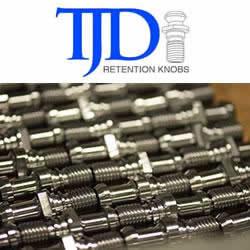SAKOR TECHNOLOGIES PROVIDES NEW DYNAMOMETER SYSTEM TO CARPENTER TECHNOLOGY FOR TESTING ELECTRIC VEHICLE MOTORS AND INVERTERS
SYSTEM WILL BE USED TO TEST EFFECTIVENESS OF NEW ALLOYS
SAKOR Technologies Inc., a recognized leader in the area of high-performance dynamometer systems, announces that it recently provided Carpenter Technology Corp (CTC) with a dynamometer test system that will be used to test the effectiveness of new alloys being used for electric motor components and inverters. The system features both a 250 kilowatt (kW) and a 12 kW AccuDyne™ four quadrant AC dynamometer, which covers a wide range of electric motor testing capability. The test system also includes a 250 kW, 800 VDC, ±500 amp battery simulator. The dynamometer and other subsystems are configured for electric vehicle motor and inverter testing.
The system will be automated by SAKOR's DynoLAB™ test automation controller, a powerful system that enables test engineers and/or technicians to design and implement complex test procedures without the need to learn a programming language. Operators can quickly configure and run tests using the easy to use, menu driven interface.
The unique multi-function two-dynamometer electric motor test system provides the ability to test a wide range of motor sizes. Also included are two universal inverters that can directly power the AC motors under test. It also includes a high voltage battery simulator that provides DC power to the customer's vehicle inverter, if available. An included cooling system enables testing of both air- and water-cooled motors and inverters.
The AccuDyne™ four-quadrant dynamometers are capable of full bi-directional loading and motoring of the device under test. They can also provide full rated torque at stall. Each dynamometer, as well as the battery simulator, provides regenerative power recapture. This makes the test system itself extremely power efficient and greatly reduces operating costs.
"The customer needed a machine that could test a very broad range of motor sizes and powers and this new system allows them to test new motor technology with or without customer inverters, making it extremely versatile," said Randal Beattie, president of SAKOR. "This single system will take the place of as many as four independent test stands."
About SAKOR Technologies Inc.
SAKOR Technologies Inc. is a recognized leader in the manufacture and development of reliable and cost-effective automated test instrumentation systems for a wide range of applications. For over 35 years, the company has been providing quality products and superior customer service to a variety of markets including automotive, hybrid and electric vehicle, military, aerospace, marine, heavy equipment, performance racing, electric motor, consumer appliance and more.
For more information, contact us at 989-720-2700, via e-mail at: info@SAKOR.com, or visit SAKOR's website at www.sakor.com.
Product or service trademarks mentioned herein are the trademarks of their respective owners
####
Featured Product

